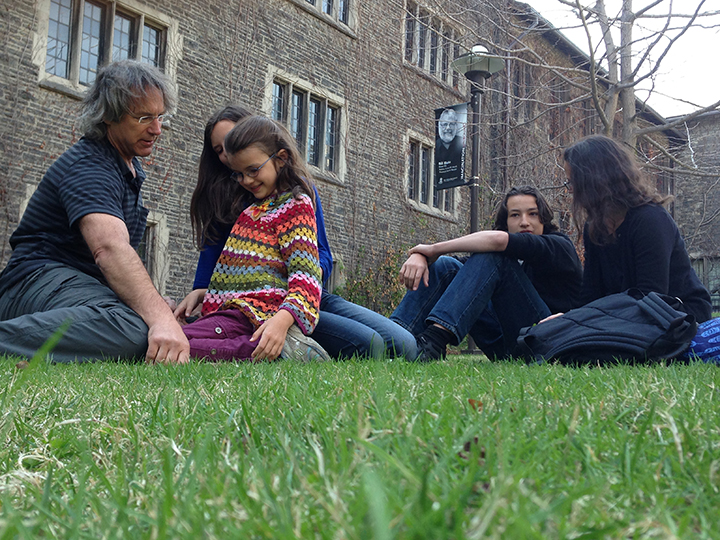WATCH ABOVE: In the documentary, All the Time in the World, a Yukon family-of-five shows what can happen when you put away the devices. Trish Kozicka has their story.

TORONTO — Imagine taking three kids under the age of 10 into the bush for nine months, with no electricity, no running water and no internet or phones. That’s what one Canadian family did to reconnect with one another, and they documented the whole adventure in a documentary that made its Toronto debut this week at the Hot Docs festival.
“We decided,” explained Suzanne Crocker, “that we needed to make a total break from schedules and hectic life and email and technology because we just weren’t able to find enough time as a family, and we were feeling like our family was starting to pull apart.”
Her 12-year-old daughter Kate, who was eight at the time, admits her mom would spend a lot of time on the computer and she would rarely get to see her dad because he was always working. Well, that was all about to change.
After months of planning, the family-of-five left the comforts of their Dawson City, Yukon home, and travelled more than 170 kilometres north into remote wilderness.
“Off the grid, no road access, no Internet, electricity, or phones. We didn’t even take a clock or a watch,” said Crocker.
She and her husband had actually done a similar trip when they were first dating to make sure they were compatible (both passed the test). That helped the logistics a bit, at least when it came to figuring out how much food to bring. But kids, and having to homeschool them, added an extra challenge.
Naturally, the mother-of-three did have some worries — like whether her children would tear each other apart, or how quickly the novelty of the situation would wear off for them.
“And really it was just exactly the opposite,” she said. “They seemed not to be able to get enough of us and really relished in that time that they had with us, when we were actually paying attention and doing stuff with them.”
“They never once in 9 months said ‘I’m bored. I don’t know what to do.’ And it just seemed like the world opened up to them, and they found so many creative ways to use their imagination.”
Looking back, Crocker thinks the experience also brought out more humour and creativity in her and her husband. She believes those parts of their personality can sometimes get lost in daily stresses and pressures.
“We have way more respect now for time, and how precious a commodity it is,” added her husband Gerard Parsons, who works as a rural doctor.
He and his family realize how privileged they were to be able to do this. At the same time, they realize it’s not a realistic option for many people.
READ MORE: Edmonton couple spends 10 years cycling the world
“I think what I take from it now when I’m back living in the regular world again, is just a reminder to myself that it’s important to have some solitude. It’s important to turn off the devices now and again, and really be able to focus on the people that are important in your life…get outside, hang out with your kids.
Calgary-based parenting expert Gail Bell agrees and has the following tips for parents, who she believes are the worst offenders when it comes to being distracted by technology:
- No screens for kids before the age of 2, and no more than two hours of screen time for kids over the age of two, as per the American Pediatrics Association.
- Set rules when it comes to cell phone and computer usage at home and model what you say. “Parents can be the biggest hypocrites in the world,” she said. That may include not looking at your phone from 5:00 to 8:00 every day, or even putting your devices in a box at the door or in a closet to maximize family time.
- Rather than posting about your kids on social media, put down the phone and spend more quality face-to-face time with them. “Really,” Bell said, “nobody cares other than grandma and grandpa and maybe your best friends.”
You can see where and when All the Time in the World will be screening here.










Comments